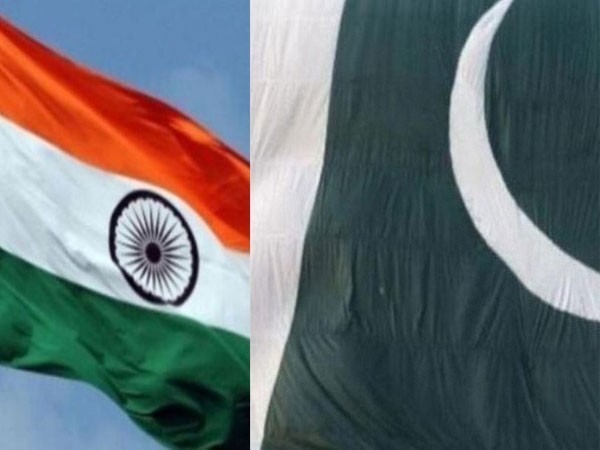New Delhi [India], May 11 (ANI): Amid escalating tensions with India, Pakistan’s long-standing claim of an “Islamic arc of support” in the aftermath of the Pahalgam terrorist attack were refuted by the sources on Sunday.
According to sources, multiple discussions with diplomats and representatives from various countries revealed that Pakistan did not receive the backing it had anticipated.
Even the Organisation of Islamic Cooperation (OIC), with which India typically has limited engagement, exhibited caution and restraint.
“There were numerous discussions with diplomats and representatives from various countries, and during these interactions, no one expressed support for Pakistan. Even the Organisation of Islamic Cooperation (OIC), with which India typically has limited engagement, showed restraint. India reached out to friendly nations within the OIC, and their statement came only after a delay, marked by a tone far less supportive than usual,” said sources.
Sources said that Pakistan has often tried to project that it has all the Islamic countries behind it, but recent events have contradicted this narrative.
“Pakistan has long attempted to portray the entire Islamic world as being aligned with its stance, but this has not been the case. Saudi Arabia was particularly empathetic toward India, especially during the Prime Minister’s visit to Saudi Arabia when the Pahalgam attack occurred. Similarly, Malaysia condemned the attack in Pahalgam, calling it wrong. There was no islamic arc of support to Pakistan,” said the sources.
Notably, India has received strong diplomatic support from Saudi Arabia and Malaysia following the Pahalgam terror attack. While Prime Minister Narendra Modi was in Saudi Arabia during the attack, the Saudi government showed empathy towards India.
A source noted that Saudi Arabia’s response was supportive, and Malaysia also condemned the attack, stating that what happened in Pahalgam was wrong.
Meanwhile, Director General Military Operations (DGMO) Lieutenant General Rajeev Ghai said that more than 100 terrorists, including those involved in the 1999 Indian Airlines flight (IC-814) hijacking, and the 2019 Pulwama terror attack, were eliminated in the precision strikes carried out by the armed forces in Pakistan and Pakistan-Occupied Kashmir (PoK) under Operation Sindoor.
He said that Operation Sindoor was conceptualised with a precise military aim to “punish the perpetrators and planners of the Pahalgam terror attack.”
“Operation Sindoor was conceptualised with a clear military aim to punish the perpetrators and planners of terror and to destroy their terror infrastructure. What I do not state here is the often stated determination of India and its intolerance to terror,” Ghai said in a press conference here.
The Indian strikes killed “high-value targets”, namely, Yusuf Azhar, Abdul Malik Rauf and Mudasir Ahmed, who were involved in the hijacking of IC 814, popularly known as the Kandahar hijack, and the Pulwama attack, where 40 CRPF jawans were killed in 2019.
“Those strikes across those nine terror hubs left more than 100 terrorists killed, including high-value targets such as Yusuf Azhar, Abdul Malik Rauf and Mudasir Ahmed, who were involved in the hijack of IC814 and the Pulwama blast,” the DGMO added.
Ghai also informed that the Indian Air Force and the Indian Navy played a “major part” in these strikes.
DGMO Ghai said that the brutal Pahalgam terror attack and the “numerous other” such attacks on armed forces and defenceless civilians prompted India to make a “compelling statement of our resolve as a nation” against terrorism.
Indian Armed Forces’ launch of Operation Sindoor in the early hours of May 7, targeting nine terrorist infrastructure sites in Pakistan and Pakistan-occupied Jammu and Kashmir (Pok).
This operation was a retaliatory response to the April 22 terror attack in Pahalgam, Jammu and Kashmir, which resulted in the deaths of 26 civilians, including one Nepali national.
Following India’s operation, the conflict between India and Pakistan deepened, which resulted in increased cross-border shelling from Pakistan and retaliatory action from the Indian Armed Forces.
Areas across the border were set up on high alert, and there were blackouts whenever attacks from Pakistan took place.
Both countries agreed to a cessation of hostilities on May 10 when US President Donald Trump, on his Truth Social, announced a “ceasefire” between India and Pakistan.
However, hours after both countries agreed to stop all firing and military action on land, in the air, and sea, reports came of Pakistan violating the cessation of hostilities with India’s air defence intercepting Pakistani drones amid a blackout in Srinagar.
At a special briefing, Foreign Secretary Vikram Misri said this is a breach of the understanding that had arrived earlier today and that India takes “very serious note of these violations.”
Prime Minister Narendra Modi held a meeting on Sunday with Defence Minister Rajnath Singh, External Affairs Minister S Jaishankar and tri-services chiefs at his 7, Lok Kalyan Marg residence in New Delhi.
National Security Advisor Ajit Doval and Chief of Defence Staff General Anil Chauhan were also present at the meeting. (ANI)
Disclaimer: This story is auto-generated from a syndicated feed of ANI; only the image & headline may have been reworked by News Services Division of World News Network Inc Ltd and Palghar News and Pune News and World News
HINDI, MARATHI, GUJARATI, TAMIL, TELUGU, BENGALI, KANNADA, ORIYA, PUNJABI, URDU, MALAYALAM
For more details and packages













